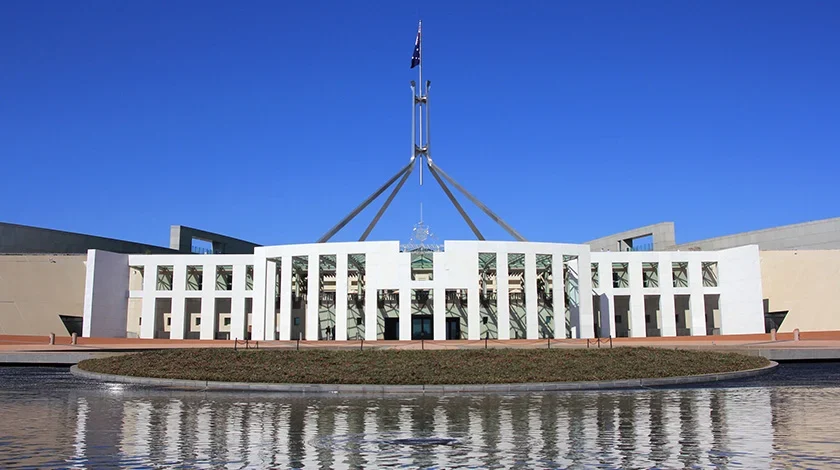The Federal Government has introduced the Small Business and Charities Bill 2023[1] to parliament. The Bill proposes a cap on the taxation of ‘general’ non-arms-length expenses (NALE) at the highest marginal tax rate of 45% for eligible superannuation funds. The changes apply to expenses incurred on or after 1 July 2018.
Background
Under current rules, NALE arises when:
- a super fund enters into a scheme in which the parties were not dealing with each other at arms’ length; and
- the expense is less than what would have been expected had the parties dealt with each other at arms’ length.
Fund expenses are characterised as either:
- Specific expenses – expenses related to a specific income earning asset of the fund; or
- General expenses – expenses incurred otherwise than in gaining or producing income from a particular asset of the super fund.
The distinction is important, as when a super fund incurs specific NALE, such as maintenance costs on a property earning rental income, only the income generated from that asset is taxed at 45%. However, when a super fund incurs general NALE with a sufficient connection to its income, such as general accounting services, the fund’s income is taxed as non-arm’s length income (NALI) at the highest marginal rate.
Prior to these proposed changes, industry stakeholders were concerned that the current law imposed (what they describe as) disproportionately harsh punishments on super funds which had relatively minor general expenses that are NALE in an income year. This is because under current law, it is possible for a super fund’s income to be taxed at the highest marginal rate where that super fund incurred an expense that is considered NALE.
The following example demonstrates the potential impact of a fund incurring general NALE under current legislation:[2]
Mikasa as trustee of her SMSF engages an accounting firm, where she is a partner, to provide accounting services for the SMSF. The accounting services include services other than those relating to complying with, or managing, the SMSF’s income tax affairs and obligations.
The accounting firm does not charge the SMSF for those services as a result of non-arm’s length dealings between the parties.
As this scheme involves the SMSF acquiring the accounting services under a non-arm’s length arrangement, and the NALE has a sufficient nexus with all the ordinary and statutory income, all of the SMSF’s income for that year would be NALI, and taxed at the highest marginal rate.
Proposed changes
The changes to the NALI rules will now limit the income tax payable at 45% for an eligible super fund to twice the difference between the amount that would be expected to be paid for that general NALE, and what was actually incurred for that general NALE. The total amount taxed at the highest marginal rate for the fund is then capped to an amount equal to the fund’s income minus deductions.
The following example demonstrates these changes:[3]
Al is the sole trustee of his SMSF which he is the sole member of. Al is also an accountant who provides general accounting services worth $3,000 to the SMSF, which is acquired free of charge.
The accounting fees acquired by the SMSF would constitute a scheme between Al and the SMSF in which the parties were not dealing at arms-length, and no expense was incurred when arms-length parties would be expected to exchange consideration for that service. Therefore, as the accounting fees were not specifically incurred in gaining or producing income, this would be deemed a general NALE.
The total income of the SMSF for the 2023-24 year is $20,000, with $5,000 in eligible deductions.
Under previous legislation, by the fund benefitting from general NALE, the entirety of the fund’s income for that year, being $20,000 minus $5,000 in deductions, would be taxed at the highest marginal rate as NALI. This would mean 45% of the $15,000 in assessable income would be taxed, producing tax payable of $6,750.
Under proposed legislation, the amount of income at the highest marginal tax rate would be capped at twice the difference between what would be expected to be paid for that expense, and what was actually incurred.
For Al and his SMSF, as the SMSF paid nothing for the accounting services valued at $3,000, the proposed legislation would cap the amount of income taxable at 45% as $6,000, being double the $3,000 identified as NALE.
This would instead mean that $9,000 of the SMSF’s income would be taxed at the normal 15% rate, and $6,000 at the 45% rate, producing total tax payable of $4,050 instead of $6,750.
If the services provided by Al were instead valued at $10,000, with no expense incurred by the fund to acquire them, this would have a slightly different tax outcome. As the new cap on income taxed at the highest marginal rate would now be $20,000, yet the fund only has $15,000 in income, the NALI component would instead be $15,000. The entirety of the fund’s $15,000 of income would then be taxed at 45%, resulting in $6,750 in tax payable.
The proposed changes to NALE rules are welcome changes. They would cap the tax payable at the 45% tax rate for SMSFs and small super funds at two times the excess between the amount of ‘general expenses’ that are considered NALE and the amount of that general expense had it been incurred at arm’s length.
Nevertheless, even with this cap in place, it would still potentially result in at least a considerable portion (and in some circumstances, 100%) of the income of the fund being taxed at 45%.
We recommend reviewing your superannuation fund’s expenses (and also the fund’s income) to ensure that the expenses it incurs and the income that it derives, if not with parties dealing with each other at arm’s length, are on terms that are at arm’s length.
Current status
On 19 October 2023, the Senate referred the Bill to the Economics Legislation Committee for inquiry and report by 23 November 2023.
We’ll watch this space.
If you would like to know more, please contact Coleman Greig’s Tax and Superannuation team to discuss how these changes apply to your specific circumstances for your superannuation fund.
[1] Treasury Laws Amendment (Support for Small Business and Charities and Other Measures) Bill 2023.
[2] Law Companion Ruling 2021/2 Example 2, paragraphs 24-26.
[3] Exposure Draft Explanatory Materials – Treasury Laws Amendment (Measures for Consultation) Bill 2023: Non-Arm’s Length Expense Rules for Superannuation Funds.















